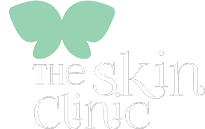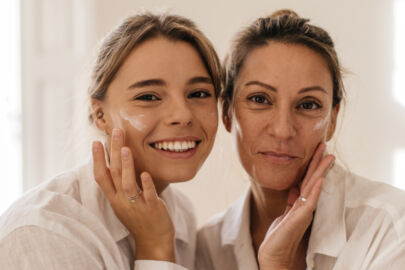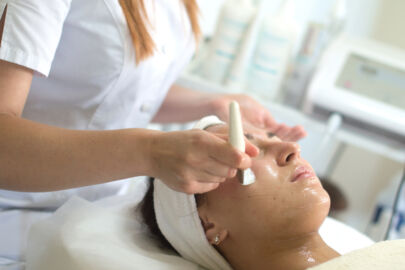We’ve all heard of (and maybe even followed) various fad diets that claim to improve the appearance of our skin. While these diets may not be based on fact, studies have shown that types of the foods you put into your body can play a big role in your physical appearance, especially the appearance of your face. Healthy, vitamin-rich foods can even help slow down the aging process, reduce the development of wrinkles, and keep your skin glowing and hydrated. Here are some of the best foods to incorporate into your clear skin diet plan, and how these foods impact your overall skin health.
Foods to Avoid for a Clear Skin Complexion
- Sugar
Some people have found that eating less sugar decreases their overall number of breakouts. Of course, sugar appears in more foods than just that soda or piece of cake: refined “white” carbohydrates can appear in breads and grains, as well as in many processed foods. Replacing these sugary foods with nutrient-rich, whole-grain alternatives can have a positive effect on your skin health by reducing inflammatory breakouts and rashes.
- Dairy
The research here can be a little more controversial, but some recent studies have shown that dairy products may increase inflammation, which can lead to acne and redness in the face. Researchers believe that the hormones in our milk products can wreak havoc on our skin. If you’re worried that dairy products are the cause of your breakouts, try switching to dairy-free alternatives like soy- or almond-based products to see if they relieve your symptoms.
- Salt
High-sodium foods, especially processed foods like potato chips or frozen meals, can make your skin retain excess water, which can make your skin look puffy or bloated. Plus, high doses of iodized salt has even been shown to increase breakouts. Check the labels on your food, especially processed foods, to make sure they aren’t overloaded with sodium.
Foods You Should Eat for a Clear Skin Complexion
- Fruits and vegetables
Incorporating more fresh, whole foods into your clear skin diet plan is one of the best things you can do for your skin. Plus, foods high in healthy fats and omega-3 fatty acids, such as nuts or avocados, are particularly ideal: these foods can help your skin retain moisture and fight off external damage. In addition, foods high in antioxidants, like leafy greens and berries, can help defend your skin from free radical damage. Aim to eat several servings of fruits and vegetables in a variety of colors every day.
- Fish
Your body uses protein to build collagen, among other things, and fish is an excellent source of protein. In addition, fish contains omega-3 fatty acids, which (as stated earlier) can help promote the overall health of your skin. Try to incorporate fish into your diet at least two or three times per week.
- Water
Okay, this technically isn’t a “food.” But drinking water is one of the healthiest habits you can incorporate into your lifestyle, and it’s great for your organs, your brain, your heart, and (of course) your skin. Drinking water frequently throughout the day can help replace the moisture you lose naturally through sweat and metabolic processes. Make sure you’re getting your eight glasses a day to ensure that your skin remains moisturized and healthy.
With a little knowledge of how your skin is affected by the foods you put into your body, you can make a difference in the way your skin appears. A healthy diet filled with nutrient-rich foods can help reduce inflammation, decrease the likelihood of breakouts, and add helpful moisture to your face—so make sure your clear skin diet plan takes this into account!




